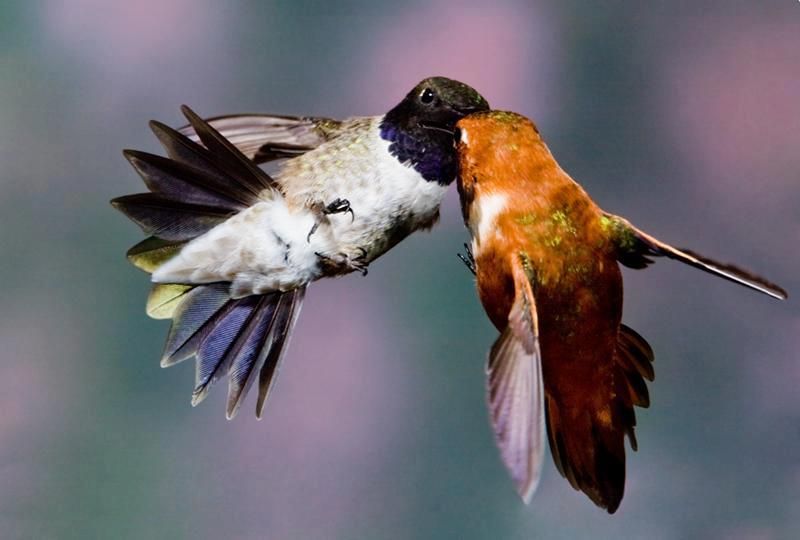Discover the ultimate guide to duel bird-watching tips and techniques. experience from binocular strategies habitat birding dual bird watching insight.
Introduction
Welcome to the exciting realm of duel bird watching, where enthusiasts take birding to new heights through friendly competitions and collaborative ventures. As the popularity of birdwatching continues to soar, the concept of duel birdwatching has emerged as a captivating way to elevate the birding experience.
Overview of Duel Bird Watching
Duel bird watching involves individuals or teams competing or cooperating to spot and identify the greatest number of bird species within a specified time frame. It’s a dynamic fusion of camaraderie and competition, adding an extra layer of enjoyment to the traditional birding experience.
Growing Popularity
The surge in interest, as reflected in Google search results, underscores the growing fascination with duel bird watching. Bird enthusiasts worldwide are seeking ways to make their birding outings more engaging and challenging, contributing to the rising trend of duel bird watching.
Benefits of Duel Birdwatching
Engaging in bird watching as a competitive or collaborative activity offers numerous advantages. It fosters teamwork, enhances observational skills, and provides a sense of accomplishment as participants strive to identify a diverse array of bird species.

Importance of Tips
While the concept of duel bird watching is exhilarating, success largely depends on effective strategies and tips. In this article, we will delve into key tips and techniques to ensure that your duel bird-watching experiences are not only enjoyable but also fruitful in terms of bird species observed.
Getting Started with Duel Bird Watching
Diving into the world of duel bird watching requires careful preparation and a strategic approach to make the most of this exhilarating activity.
Essential Equipment
To embark on a successful duel bird-watching expedition, equipping yourself with the right tools is paramount. Here’s a checklist of essential equipment:
- Binoculars: Invest in high-quality binoculars for clear and detailed bird observation.
- Field Guides: Carry field guides specific to your region to aid in bird identification.
- Birding Apps: Leverage technology by using birding apps for real-time species identification.
- Notebook and Pen: Keep a dedicated notebook to jot down observations, creating a personalized birding journal.
Choosing Optimal Locations
Selecting the right locations significantly influences the diversity of bird species you’ll encounter. Consider the following when choosing optimal birding locations:
- Habitat Diversity: opt for areas with varied ecosystems like forests, wetlands, and urban parks.
- Seasonal Variations: Explore different locations based on seasons to witness a variety of migratory birds.
- Local Birding Hotspots: Research and identify local birding hotspots known for diverse avian populations.
Time Management Strategies
Effectively managing your time adds an element of excitement to duel bird watching. Implement the following strategies:
- Set Time Limits: Establish clear time constraints for the duel, intensifying the competitive aspect.
- Schedule Early Mornings: Birds are most active during early mornings, making it an ideal time for fruitful observations.
- Plan Breaks: Factor in short breaks to rest and strategize, enhancing overall efficiency.
Now armed with the right equipment and location strategies, you’re ready to step into the thrilling world of duel bird watching. Stay tuned for the next chapters where we delve deeper into collaborative equipment use and the crucial aspect of recording and analyzing observations.
Sharing Equipment for Success
Effective duel bird watching isn’t just an individual pursuit; it’s a collaborative effort that thrives on shared resources and teamwork. we’ll explore the art of sharing equipment for success in the exciting world of duel bird watching.

Collaborative Binocular Use
Birding is all about observation, and when it comes to duel bird watching, sharing binoculars can be a game-changer. Here’s why collaborative binocular use is key:
- Broader Coverage: Sharing binoculars allows participants to cover more ground, spotting birds from different angles and distances.
- Diverse Perspectives: Different individuals may have varying spotting techniques. Collaborative use provides a chance to benefit from diverse perspectives.
Utilizing Spotting Scopes
While binoculars are essential, incorporating spotting scopes into your arsenal enhances long-distance observation. Here’s how utilizing spotting scopes contributes to the success of duel bird watching:
- Extended Range: Spotting scopes offer magnification that surpasses typical binocular capabilities, enabling observation of birds in distant locations.
- Group Viewing: Ideal for group settings, spotting scopes allow multiple participants to simultaneously view a single bird, fostering a shared experience.
Embracing Technology
In the digital age, leveraging technology is a strategic move for dual bird watchers. Integrating birding apps into your shared experience enhances efficiency and adds a modern touch to this traditional hobby:
- Real-Time Identification: Birding apps provide instant species identification, streamlining the process and ensuring accurate tracking.
- Shared Checklists: Utilize apps for collaborative checklists, making it easy for all participants to contribute to the bird species count.
Collaboration is at the heart of duel bird-watching success. Shared equipment not only magnifies the joy of spotting feathered wonders but also creates a sense of camaraderie among participants. As we delve deeper into the intricacies of duel bird watching, stay tuned for the next chapter where we explore the crucial phase of recording and analyzing observations.
Recording and Analyzing Observations
In the realm of duel bird watching, the thrill extends beyond the field. Recording and analyzing observations are pivotal steps that elevate your birding experience to a new level of insight and shared achievement.
Maintaining joint checklists is more than just a record-keeping task; it’s a collaborative endeavor that enhances the overall duel bird-watching experience. Here’s why shared checklists are essential:
- Efficient Tracking: Shared checklists allow participants to collectively track and verify the bird species they’ve observed, ensuring accuracy in the final count.
- Communal Progress: As each bird is checked off the list, participants can witness the communal progress, fostering a sense of shared accomplishment.
- Reference for Analysis: The checklist becomes a valuable reference for post-duel analysis, aiding in the examination of patterns and identifying areas for improvement.
Post-Duel Analysis
While the excitement of duel bird watching lies in the chase, the post-duel analysis is where the real magic happens. Here’s how reviewing findings together contributes to a richer birding experience:
- Identifying Patterns: Analyzing the collected data helps participants identify patterns in bird migration, behavior, and habitat preferences, contributing to a deeper understanding of avian life.
- Celebrating Diversity: Reflecting on the diverse species observed allows participants to celebrate the unique characteristics of each bird, fostering a greater appreciation for the richness of bird life.
- Learning from Mistakes: Post-duel analysis provides an opportunity to learn from mistakes and strategize for future duel bird-watching adventures, ensuring continuous improvement.
Recording and analyzing observations not only solidify the shared experience but also contribute to the collective knowledge of the group. As we conclude this chapter, stay tuned for the final installment where we recap key points and offer words of encouragement for readers to embark on their own duel bird-watching journeys.

Duel Bird Watching Tips for Beginners
Embarking on a duel bird-watching adventure as a beginner may seem daunting, but with the right tips and techniques, you can elevate your experience and join the ranks of avid bird enthusiasts. Here, we delve into essential tips for efficient observation and common mistakes to avoid during duel bird-watching.
Tips for Efficient Observation
Master Your Equipment:
- Before the duel begins, familiarize yourself with your birding equipment, especially binoculars. Practice adjusting settings quickly for seamless observation.
Develop a Systematic Approach:
- Divide the viewing area into sections, systematically scanning each part. This ensures comprehensive coverage and reduces the chance of missing elusive bird species.
Learn Bird Calls:
- Bird calls are valuable clues. Familiarize yourself with the distinctive calls of common species, enhancing your ability to locate birds by sound.
Stay Patient and Still:
- Patience is a virtue in bird watching. Find a comfortable position, stay still, and observe quietly. Birds are more likely to reveal themselves when they sense minimal disturbance.
Collaborate Effectively:
- Communication is key in duel bird watching. Coordinate with your partner, share findings promptly, and strategize together for efficient species identification.
Common Mistakes to Avoid
Overreliance on Technology:
- While birding apps are useful, avoid overreliance. Use them as complementary tools rather than substitutes for your observational skills.
Neglecting Safety Measures:
- In the excitement of bird watching, it’s easy to overlook safety. Be mindful of your surroundings, especially if you’re in unfamiliar terrain.
Ignoring Environmental Impact:
- Respect the natural habitat. Avoid disturbing birds or their nests, and stay on designated paths to minimize environmental impact.
Lack of Preparation:
- Insufficient preparation can hinder your experience. Research the bird species in your chosen location, understand their habits, and be equipped with the right knowledge.
Failure to Adapt:
- Bird-watching conditions can change rapidly. Be adaptable – whether it’s adjusting to weather changes or modifying your observation strategy based on bird behavior.
As you set out on your duel bird-watching journey, remember that every observation, successful or not, contributes to the richness of the experience. Stay tuned for our concluding chapter where we recap key points and offer encouragement for your exploration into the fascinating world of duel bird watching.
Conclusion
As we conclude this exploration into the realm of duel bird watching, it’s crucial to recap the key points and offer encouragement for your continued exploration into this unique and rewarding activity.
Recap of Key Points
Collaborative Nature:
- Duel bird watching adds a collaborative aspect to the solitary hobby, fostering camaraderie and shared experiences among enthusiasts.
Strategic Use of Equipment:
- The use of specialized tools, from binoculars to spotting scopes and birding apps, enhances not only individual observation but also the collective success of duel bird watching.
Efficient Recording and Analysis:
- Shared checklists and post-duel analysis contribute to a comprehensive understanding of the observed bird species, promoting continuous learning and improvement.
Tips for Efficient Observation:
- Practical tips, such as mastering equipment, adopting a systematic approach, and learning bird calls, ensure a more successful and enjoyable duel bird-watching experience.
Avoiding Common Mistakes:
- Awareness of pitfalls, from overreliance on technology to neglecting safety measures, helps enthusiasts navigate challenges and elevate their bird-watching proficiency.
Encouragement for Exploration
Embarking on a duel-watching adventure is not just about the birds; it’s about the journey, the shared discoveries, and the joy of connecting with nature. As you venture into this exciting realm, remember that every moment holds the potential for a new and unique birding experience.
So, equip yourself with knowledge, collaborate with fellow enthusiasts, and embrace the thrill of duel bird watching. Your journey is bound to be filled with diverse species, shared excitement, and a deepening appreciation for the avian wonders that grace our skies.

Mastering Duel Bird-Watching Tips
Diving deeper into the intricacies of duel bird watching, mastering essential tips is the key to elevating your experience and success in this dynamic pursuit. Here, we delve into nuanced strategies that will set you apart as a proficient duel bird watcher.
Adapting Observation Techniques:
- Mastering duel bird watching demands a keen eye and adaptive observation techniques. Learn to discern subtle movements, recognize distinct calls, and employ strategies tailored to different bird species.
Effective Use of Field Guides:
- While beginners focus on identification, seasoned duel bird watchers leverage field guides for more nuanced insights. Grasp the art of interpreting field guide information, from habitat preferences to behavioral patterns.
Strategic Communication:
- Communication is a silent tool in duel bird watching. Explore advanced techniques for non-verbal collaboration with your partner, ensuring seamless coordination during intense birding sessions.
Advanced Technology Integration:
- Beyond basic app usage, advanced birders embrace cutting-edge technologies. Explore the integration of AI-powered identification tools, telemetry data, and advanced mapping systems for a more comprehensive birding experience.
Environmental Awareness:
- A true duel bird watcher is attuned not just to birds but also to the environment. Understand the interconnectedness of ecosystems, weather patterns, and migration cycles, enriching your observations with a holistic perspective.
Strategies for Record-Keeping:
- Elevate your post-duel analysis by refining your record-keeping strategies. From detailed notes on bird behaviors to environmental conditions, meticulous documentation enhances the depth of your findings.
Risk Mitigation Tactics:
- As you advance in duel bird watching, encounters with challenging terrains and unexpected situations are inevitable. Explore risk mitigation tactics, ensuring your safety and enhancing your ability to navigate diverse landscapes.
Cultivating Patience and Perseverance:
- Duel bird watching is a pursuit that rewards the patient and perseverant. Cultivate these virtues, embracing the unpredictability of bird behaviors and the challenges posed by ever-changing environmental conditions.
Exploration Beyond Familiar Grounds:
- Extend your duel bird-watching horizons by exploring new territories. Venture beyond familiar grounds, and embrace the thrill of discovering novel bird species in diverse habitats.
Advanced Strategies in Duel Bird Watching
As seasoned duel bird watchers know, the journey doesn’t end at mastering the basics. This chapter delves into advanced strategies that elevate your duel bird-watching game to new heights. These techniques, often honed through experience and a deep understanding of avian behavior, add an extra layer of excitement to every duel.
Advanced Camouflage Techniques:
- Bird species, especially those in competitive or elusive environments, demand a higher level of concealment. Explore advanced camouflage techniques, ensuring you remain undetected while observing these birds in their natural habitat.
- Duel bird-watching enthusiasts often find themselves in diverse and challenging landscapes. Learn how to navigate rough terrains, from dense forests to mountainous regions, ensuring your birding adventures aren’t hindered by geographical obstacles.
Dueling at Night:
- Many bird species exhibit unique behaviors during the night. Explore strategies for duel bird watching after sunset, employing specialized equipment and techniques to observe nocturnal avian activities.
Integrating Citizen Science:
- Take your duel bird watching to a new level by contributing to citizen science initiatives. Learn how to collect data that aids scientific research while simultaneously enhancing your bird-watching experience.
Mastering Bird Calls:
- Advanced duel bird watchers often distinguish themselves by their ability to identify birds solely by their calls. Delve into the intricate world of bird vocalizations, honing your skills in recognizing and interpreting a variety of avian sounds.
Utilizing Unmanned Aerial Vehicles (UAVs):
- Embrace cutting-edge technology by incorporating UAVs into your duel bird-watching toolkit. Explore the benefits of aerial perspectives, aiding in the observation of birds in difficult-to-reach locations.
Adapting to Weather Challenges:
- Weather conditions can significantly impact bird behavior. Learn how to adapt your duel bird-watching strategies to different weather scenarios, maximizing your chances of observing unique avian activities.
Customizing Checklists for Specialized Duels:
- Tailor your checklist approach based on the specific requirements of the duel. Whether focusing on rare species, unique behaviors, or specific habitats, customization adds a layer of depth to your shared observations.
Building Partnerships for Conservation:
- As an advanced duel bird watcher, consider leveraging your passion for birding to contribute to conservation efforts. Explore partnerships with local and international organizations, channeling your observations toward the greater cause of avian preservation.

1 thought on “Duel Bird-Watching Tips: Mastering the Art for Avian Enthusiasts”
Comments are closed.